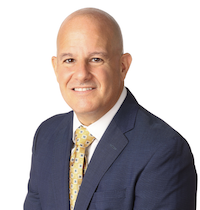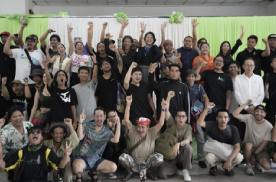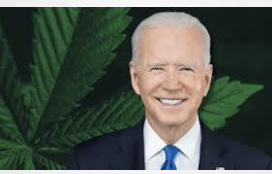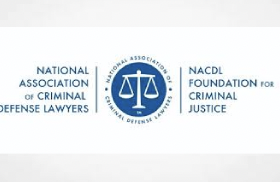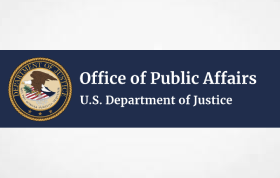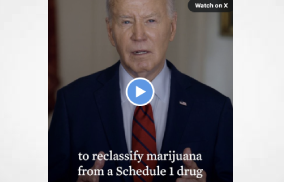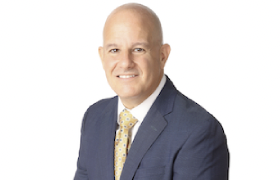This week we speak with Joshua who does his best to untangle the chaotic system(s) and technologies that really aren’t sophisticated enough to determine cannabis DUI through the prisim of New Jersey v. Olenowski
Joshua S. Bauchner serves as the chair of the Cannabis and Psychedelics Practice Group and is a Partner in the Litigation and Bankruptcy practice groups. He brings a depth of expertise and dedication to the practice, where he is involved in complex commercial and securities litigation, class actions, and bankruptcy-related issues. His areas of specialization include:
- Enforcement of commercial contracts such as lease agreements, guaranties, purchase and sale contracts, and commission agreements.
- Litigation of partnership disputes.
- Defense against class actions stemming from alleged violations of consumer protection statutes.
- Addressing claims originating from insurance coverage denials.
- Defense against commercial foreclosure actions.
In the ever-evolving area of psychoactive substances, Josh was instrumental in co-hosting the inaugural Cannabis Symposium in New Jersey, attracting nearly a thousand attendees, with subsequent symposia continuing to garner attention. As a notable member of the New Jersey State Bar Association Cannabis Law Committee, the NORML Legal Committee, and the Amicus Committee, he received the New Jersey Law Journal’s Innovator of the Year Award.*
A passion for education and community development, as a licensed real estate instructor in New York, he educates aspiring real estate professionals, and he has served as an adjunct professor at Brooklyn Law School.
After graduating from law school, Josh had the honor of clerking for the Honorable Ursula Ungaro at the United States District Court for the Southern District of Florida. He also served as the Deputy Director of the Legal Division at the New York City Department of Consumer Affairs.
Josh is deeply involved in his community. He was appointed by the Manhattan Borough President to Manhattan Community Board 10, where he served as the Board’s treasurer and co-chaired the Committee on Land Use. Additionally, he has played an active role on the Board of Trustees for Wheaton College, the New York Theater Ballet, Frederick Douglass Boulevard Alliance, and the Harlem Wellness Center.
His extensive experience is also evident in representative matters, ranging from construction and design defect claims to defending corporate clients against securities fraud claims presented by the SEC and DOJ.
He is admitted to practice in both New York and New Jersey as well as the United States District Court of Michigan, The United States District Courts for the Southern, Eastern and Western Districts of New York, The United States District Court for the District of New Jersey as well as the United States Court of Appeals for the Second and Third Circuit.
In addition to his professional endeavors, Joshua’s thoughts and perspectives have been featured in numerous publications, shedding light on diverse areas such as cannabis laws, creditors’ rights in bankruptcy, and the intricacies of negligence claims.
*No aspect of this advertisement has been approved by the Supreme Court of New Jersey or the American Bar Association. A description of the standard or methodology used by the New Jersey Law Journal, can be found here.
USEFUL SOURCES
The New Jersey Supreme Court granted certification to decide “whether the testimony of an officer who is a certified Drug Recognition Expert (DRE) is admissible at trial and, if so, under what circumstances.” At the heart of the case was whether there was a reliable scientific basis for a twelve-step protocol that is used to determine (1) whether a person was impaired, and (2) whether that impairment was likely caused by ingesting one or more drugs. For decades, issues like this in criminal cases were analyzed under the test outlined in Frye v. United States, 293 F. 1013 (D.C. Cir. 1923). That standard turned on whether the subject of expert testimony was “generally accepted” in the relevant scientific community. The New Jersey Court moved away from the Frye test over time. In civil cases, New Jersey shifted toward an approach that focused directly on reliability by evaluating the methodology and reasoning underlying proposed expert testimony. After an extensive evidentiary hearing before a Special Master, the Court asked the parties and amici to submit their views on whether to depart from Frye and adopt the principles of Daubert in criminal cases. After review, the Court concluded Daubert offered a superior approach to evaluate the reliability of expert testimony. This case was remanded back to the Special Master to apply the standard announced here to the DRE evidence in the first instance.
Olenowski has arrived. I am just doing a cursory – quick and dirty read, while doing everything else in my life, so if I am wrong, it is a mistake of haste, not intent. Here are the big takeaways I have already –
1. Not a unanimous decision taking up 138 pages, incorporating by reference the 332 page Special Master’s Report, the 57 page Special Master’s Supplementary Report, as well as Olenowski I, which changed the standard of review to Daubert from Frye in the criminal proceedings.
2. There is a dissent filed by Justice Pierre-Louis, with whom Chief Justice Rabner joined. Read this first… it is 🔥 !!
3. DRE is admissible with certain “limitations and safeguards”
3a. DRE may opine ONLY that the evaluation is “consistent with,” and not actually caused by, ingestion or usage of drugs.
3b. State must make a reasonable attempt to get toxicological evidence. Without persuasive justification, DRE testimony is otherwise excluded.
3c. Defense must be afforded fair chance at cross exam.
3d. Model instructions should be developed to assist factfinders (Juries/MC Judges).
4. Reliability testimony of experts is subject to “De Novo” review from trial courts. Admissibility of experts is subject to “abuse of discretion” review. (I am going to have to parse this close – may apply to cases coming out of the “Trial Court” being the Superior Court on appeal from a municipal courts … or … does this actually give some deference to a municipal court judge’s decision?!) – see not frozen in time p 59. – but see a lack of definition of “trial court.”
I started with the dissent, so to look critically at the opinion itself. I am still getting through the opinion. I am curious about anyone else’s take. If you don’t want to publicly comment on it, I get that! Reach out privately!
Conclusions I can make? Well, here are my initial conclusions, having had 2.5 hours to digest what I could of this:
A. DWI, and specifically DUID, defense attorneys will have to be polished and lethal on cross-examination.
B. DRE’s WILL opine outside of their permitted bounds. It is just inevitable in the realities of 562 laboratories feeding into “normal” superior courts. The questions will come down to how you limit those on direct as a prosecutor (and as an objecting defense attorney), and how you keep those doors closed on cross as a defense attorney.
C. The plain stripped description of DWI law in NJ by Judge Sabatino is incredibly refreshing and … iminently citable.
– In particular, the State must prove both the “facts of intoxication” and the “cause of intoxication.” p. 11
– the State must prove in DUID cases that (1) the defendant was intoxicated and (2) the cause of the intoxication was either narcotics, hallucinogens, or habit-producing drugs. p. 12
D. This will also be a watershed case for analyses of standards of review, as there was scholarship & depth given to those particular arguments.
Welcome to the new world!
A-56-18 – State v. Michael Olenowski 082253 Morris County & Statewidenjcourts.gov • 141 min read
https://law.justia.com/cases/new-jersey/supreme-court/2023/a-56-18.html
Challenging the Reliability of Drug Recognition Evaluators (DRE) in assessing and investigating Driving Under the Influence of Drug (DUID) cases.
Day 7, October 7, 2021, Olde Historic Courthouse, Mount Holly, NJ
I am representing the DUI Defense Lawyers Association as Amicus in the New Jersey challenge to DRE (Drug Recognition Evaluation) in State v. Olenowski. Now on Day 7 of testimony in a hearing that will run through November. This case will determine the scientific reliability and admissibility in New Jersey of the 12 step process that police officers use to assess whether arrestees are purportedly under the influence of illegal or prescriptive drugs at the time of the testing.
DRE is a cobbled together process of medical assessments by non-medical personnel, use of field sobriety tests that are not validated for drug testing, and toxicology, usually urine testing, that doesn’t include quantitative amounts of the presence of the substance the individual is alleged to be under the influence of. Statistics show that DRE results are less than 50 percent reliable.
The correct result of the hearing will be that Drug Recognition Evaluation is not scientifically reliable. Any other result would be based on the desire for expediency of convictions for drug based impaired driving. Finding DRE unreliable will not hinder prosecuting those alleged to be under the influence of drugs. Prosecutions may proceed on observation evidence.
https://www.nj-dmv-dwi.com/state-v-olenowski/
New Jersey’s top court deems drug recognition experts ‘reliable enough’
In a split decision, Supreme Court justices admitted uncertainty on whether such experts accurately detect impairment
New Jersey’s Supreme Court has declared the testimony of drug recognition experts reliable enough to be used as evidence, though they limited its use over concerns about such experts’ processes.
Wednesday’s decision is a partial defeat for the state Office of the Public Defender, which argued the case, and the American Civil Liberties Union of New Jersey, which was among several groups that filed supporting briefs. It comes three months after a court-appointed special master found such testimony was reliable enough to act as evidence.
“Although we believe evidence regarding the DRE protocol should never be admissible at trial, the Court today took important steps to show its commitment to sound science, to stop the prosecution from proving its case through shortcuts and the overuse of police officers in place of empirical evidence to sustain criminal convictions, and to make clear to all courts, prosecutors, defendants, and the public that it will maintain the integrity of criminal prosecutions.” said Assistant Deputy Public Defender Molly Mclane.
New Jersey’s top court deems drug recognition experts ‘reliable enough’
STATE V. OLENOWSKI
On May 24, 2019 the ACLU of New Jersey and the Office of the Public Defender filed an amicus brief in the New Jersey Supreme Court in a case that questioned the reliability of Drug Recognition Evaluation (DRE) testimony. DRE examinations are performed by police officers to determine whether drivers are under the influence of drugs. There are twelve steps to the DRE protocol, some of which are highly technical. Among other things, the DRE protocol requires testing a suspect’s pulse, gaze nystagmus, blood pressure, temperature, pupil size, and muscle tone. We contended, as a threshold matter, that these tests are sufficiently scientific to require proof of their general acceptance before they can be used in criminal prosecutions. The State did not introduce expert testimony or scientific writings; instead it relied on judicial opinions to prove general acceptance. The brief explained that the State overread the precedent on which it relied and, even if it didn’t, the jurisprudence was not persuasive. Although courts have allowed DRE testimony for a long time, when scientists adapt, courts – as gatekeepers of scientific testimony and evidence – must consider the changed state of science. We urged the Court to appoint a special master to hold a hearing to determine the acceptance, and therefore reliability, of DRE testimony.
